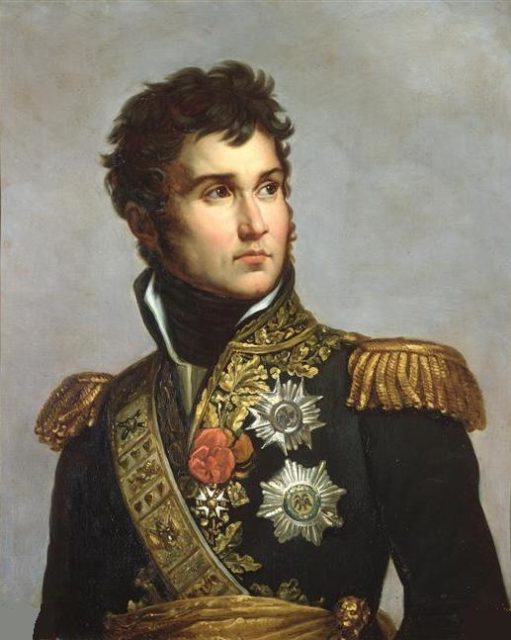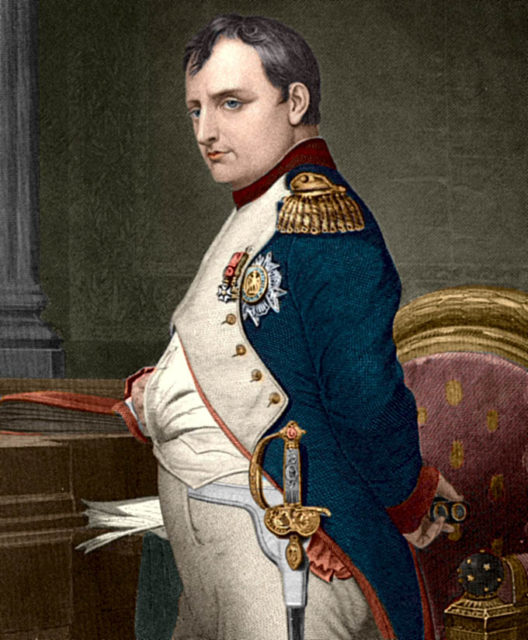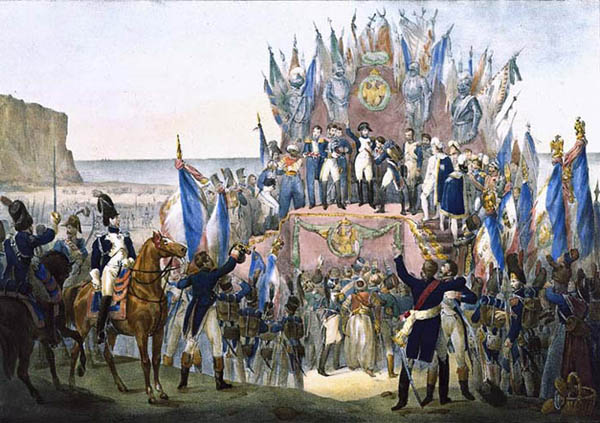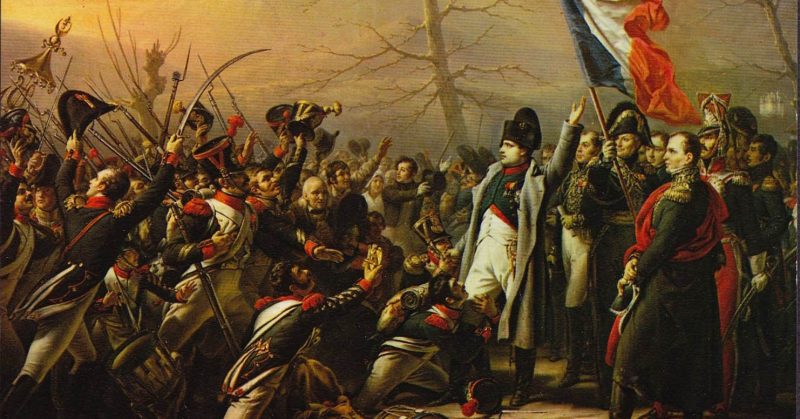Napoleon Bonaparte was an inspiring figure. His greatest opponent, the Duke of Wellington, said that the French Emperor inspired such confidence that his presence at a battle was worth 40,000 fighting men.
One of the ways in which Napoleon became such an inspiration to his troops was through the emphasis he placed on bravery and the ways he celebrated battlefield courage in the French army.
Statues
A cult of great men and women was central to the propaganda of Napoleon’s government. This extended to all areas of life, from the government to the arts, with statues and memorials being raised to great men, and more rarely women. In a militarised nation, soldiers were among those who became central to the cult.
Statues were raised to French heroes renowned for their courage, such as Joan of Arc. But though this cult of great soldiers was partly about drawing comparisons with famous figures from the past such as Joan of Arc or Julius Cesar, it was also about celebrating great soldiers of the age.
Jean Lannes was among the soldiers celebrated in statuary. A humble farmer’s son who rose to the rank of marshal, Lannes was famed for his battlefield courage. He was injured several times exposing himself to danger as he led his men. On 22 May 1809, Lannes’s legs were smashed by a cannonball. Lannes tried to shrug it off as “nothing much”, but died of his wounds nine days later. The sculptor Cartellier was commissioned to craft a statue in honour of Lannes.

Uniforms
Napoleon wanted his best soldiers to stand out in life as well as in death. He encouraged his marshals, the men he held up as paragons of courage, to wear elaborate uniforms covered in gold brocade. He wanted them to be a symbol of inspiration to his men, the smartest and most courageous French soldiers standing out on the field of battle.
Decorations
If Napoleon had only ever celebrated the success of leaders then he would have provided little inspiration to common fighting men, those whose courage mattered the most. But he took pride in celebrating their achievements too and making sure that their comrades saw this happen. He awarded decorations while visiting the men in camp. An officer was made a baron for his battlefield courage while the bravest soldier in a regiment became a knight of the Legion of Honour.

The Legion of Honour, which was regularly used to award bravery, was more than just a title and a medal. Created by Napoleon in 1802, it was the highest honour that could be awarded. It came with a cash payment, more generous the higher the award being granted, meaning that it made a substantial difference to men’s lives.
Talking up Bravery
Talk can be cheap, but when the emperor of a nation talks people listen, and Napoleon talked about courage a lot. When granting decorations, he would speak about how the recipient was “the bravest officer” or “the bravest soldier” in their unit. He said that any French soldier who survived the Battle of Austerlitz would be known as “a brave man”.
This talk of bravery reached levels that can sound hyperbolic, discussing the immortal glory that his soldiers would earn. But this was in keeping with the rhetoric of the enlightenment, of an era when men were beginning to doubt heavenly immortality and to look to their reputations to live on after them. Napoleon’s constant talk of courage celebrated this virtue and reminded men that it could be a way to live on in history, like the legendary heroes of antiquity.
Individual Nicknames
A medal was prestigious, a cash reward important to a soldier’s life. But sometimes the little things could make a difference, especially when they were little things that would crop up every day in a soldier’s life.
Napoleon used nicknames to draw attention to the quality of soldiers, and not just those he interacted with regularly like his marshals. One soldier was given the nickname “the smasher,” a title a soldier could wear with pride.
Unit Nicknames
Units, as well as individuals, could earn inspiring nicknames. Napoleon labelled his grenadiers as the Immortals.
This was a nickname with a long history of heroism behind it. The Immortals were originally an ancient Persian unit described by the Greek historian Herodotus, and renowned as the elite of the Persian fighting forces. The Byzantines re-used this title for their elite soldiers in the 11th century, hoping to acknowledge the greatness of their men and earn some glory by association.
By naming his grenadiers in this way, Napoleon was saying that he considered their courage to be as great as the most famous fighting units in history. It also allowed him to tie their reputation to his talk of immortal glory – even to someone unfamiliar with classical history, the names Immortals implied men of such greatness that their legends would endure forever.
Highlighting the Potential in All Soldiers

Napoleon made sure that the potential for courage, tenacity and fierce fighting in all of his men was acknowledged. He made a great public display of supporting the meritocratic ideals of the French revolution – that all men, however humble their origins, were capable of greatness.
In military terms, this meant showing that he believed every man under his command was as capable of courageous military achievements as the next. Though his armies were led by a small group of highly celebrated Marshals of France, he spread their glory around, stating that every French soldier had a marshal’s baton in his knapsack. Such batons were not, of course, issued to all men. But Napoleon wanted all of his soldiers to feel that their courage, however obscure and unnoticed, had been acknowledged by the Emperor.
